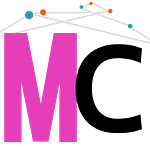What is ethics? Why do we need to consider ethical practices in the arts? How do we practice ethics in the communities we are working in as arts professionals? Over seven workshops on a Saturday morning, I pondered these and many other questions along with a handful of other participants, guests, and our two facilitators – Taiwo Afolabi and Jemma Llewellyn.
At the beginning of each Ethical Practices in the Arts workshop, Taiwo and Jemma began with a land reflection – locating themselves and reflecting with us how we came to be on Turtle Island. Then they invited us to share how we were feeling that day. All of this felt grounding to me and I believe helped us to engage with the questions we were being invited to be curious about.
Prior to each workshop we were given access to a pre-reading, video, podcasts and workbook. I didn’t always have time to do the pre-work, nor was it a requirement in order to participate, but I always appreciated that Taiwo and Jemma would provide a summary which helped to situate me within the content and context of the workshop day.
As a critical thinker and questioner, I loved that we began the workshops with the question: “What ethical questions do we need to ask ourselves in our practice AND why do we need to ask ethical questions?”
Taiwo provided 5 key areas of ethical questioning from his research:
- What is the perceived/earned/given power and privilege?
- What are the shifting identities of the practitioner or researcher?
- What is the socio-economic and cultural realities of the population/community involved in a given project?
- What are the different dynamics of the ecosystems involved in the research?
- Who has access/power to the knowledge that is produced?
The purpose of asking these questions before/during/after engaging with community is to be reflective, to be aligned with one’s values, to better understand or challenge the system in which one is operating in, and to cultivate an openness in oneself to a new way of seeing.
In the subsequent workshops, we explored the Multiple Ethical Paradigm from multiple perspectives and the relationships between: ethics of profession (setting a high moral standard and code for a specific vocation), ethics of critique (challenging the status quo, and questioning oppression and social inequities), ethics of justice (dealing with laws, rights and policies), ethics of care (focusing on supportive and nurturing relationships), and ethics of service and engagement (focusing on the principles of knowledge production and mobilization).
Guests joined in some of the workshops to give real live examples of their work on the ground as researchers, educators, and practitioners. Here are a few of the quotes I was able to capture quickly (my paraphrases) in my notebook:
How do we bring about change in big institutions? It’s hard work, but we begin with ourselves and our own personal ethics to address and navigate big things.
Nikki Shaffeeullah
How do we fight together rather than against each other? We find our way through collaboration and community. The greatest resource we have is each other
George Lipsitz
How do I envision ethics of care and put it into practice? With the notion of radical empathy, feeling, and compassion.
Daniel Fischlin
How do we cultivate a safe ethical space? By not only managing our own behaviours, but also to create dignified spaces for everyone that are inclusive, represented, and valued.
Paulina Grainger
How do we centre decolonial love? Love is gifted to us by the Eagle. We love ourselves and all beings. Our culture, identity, language, lands, and non-human relationships.
Jess Notwell
Taiwo and Jemma were wonderful facilitators and hosts to the content and conversations of Ethical Practices in the Arts. I didn’t want the workshop series to end! Sometimes the conversations became tense as we all critically looked at our own and each other’s interpretations and practice of ethics. We were reminded that ethics isn’t easy work, but we should not feel debilitated by trying to get it all right at once. Pause. Ask questions. Reflect. Collaborate. Be open. Reciprocate.

